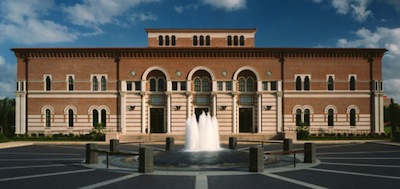
Baker Institute, Rice University
Future historians of climate change, as a publicly debated and discussed issue, may some day chart its course in the changes that occurred in news coverage.
Journalists and other close observers of media trends have noted such a shift in U.S. reporting over the last couple of years – essentially, less attention to climate change as a science debate and more attention to it as the focus of a growing policy debate.
In the July/August issue of the Columbia Journalism Review, the different emphasis was described this way by Cristine Russell, a freelance science journalist and former Washington Post reporter who is president of the Council for the Advancement of Science Writing:
“Media coverage of climate change is at a crossroads, as it moves beyond the science of global warming into the broader arena of what governments, entrepreneurs, and ordinary citizens are doing about it.”
There will be other signs of the climate issue’s trajectory that historians may note, of course.
In Texas, that path is evident in the evolving titles and content of three conferences held at Rice University’s James A. Baker III Institute for Public Policy since 2000. Baker, a Houston attorney and the institute’s honorary chair, served as secretary of the treasury under President Ronald Reagan, as secretary of state under the first President George Bush and as White House chief of staff in both administrations.
In 2000, his namesake think tank at Rice held a conference called “Global Warming: Science and Policy.” The list of speakers had the names of numerous scientists, including several regarded as skeptics about the risks of greenhouse emissions from human activities altering the climate.
Earlier this year, the institute presented a conference entitled “Beyond Science: The Economics and Politics of Responding to Climate Change.” The keynote speaker was Sen. John Kerry of Massachusetts, the Democratic nominee for president in 2004 and a vocal proponent of action to mitigate global warming. A Rice announcement said the gathering would “bring together leaders committed to educating the public about the impact of global warming and discuss their experiences in crafting public policy in this area. In particular, it will address alternative policies to constrain carbon in the environment.”
This week, a third climate conference was held at the Baker Institute – “Emerging U.S. Climate Policy: Trans-Atlantic Approaches and Market Harmonization.” One speaker was Brice Lalonde, French ambassador for climate change, who voiced hope that the U.S. under President-elect Barack Obama would join Europe in capping greenhouse emissions and crafting a new climate change treaty.
“We are so happy now that we’re going to work together,” Lalonde was quoted as saying in a Houston Chronicle article. More excerpts from the Chronicle’s interview with the French diplomat were posted in science writer Eric Berger’s SciGuy blog.
In a Wall Street Journal blog post, reporter Russell Gold found it ironic, if not astounding, that “about 100 people gathered (in Houston, no less!) to listen to what Brice Lalonde, France’s special ambassador for climate change, had to say. To repeat: People in the U.S. energy capital gathered to pick up wisdom from the French.”
In the Chronicle article, Lalonde called on the U.S. to take a prominent role in the effort to curb global warming: “We need your leadership, ingenuity and entrepreneurship.”
That comment was in line with a remark that Baker himself had made in September in a roundtable discussion with four other former secretaries of state at George Washington University.
He observed then, according to an event transcript, that “America is gonna have to lead the effort to get a global climate change treaty. It’s a global problem, it’s gonna have to be solved globally. We are gonna have to bring all these other countries in. They can’t be excluded, China, India and others, but only America is gonna be able to lead that charge.”
– Bill Dawson
Disclosure: Texas Climate News editor Bill Dawson also teaches as a part-time lecturer at Rice University.
